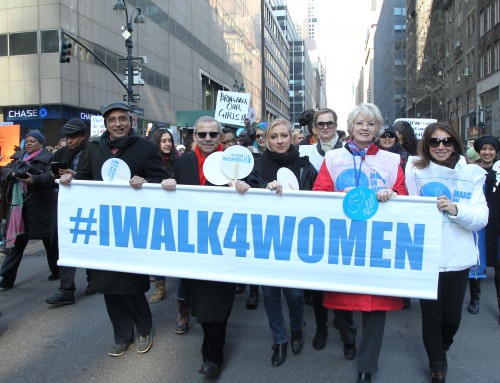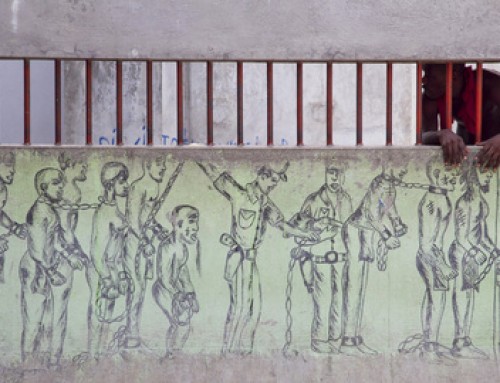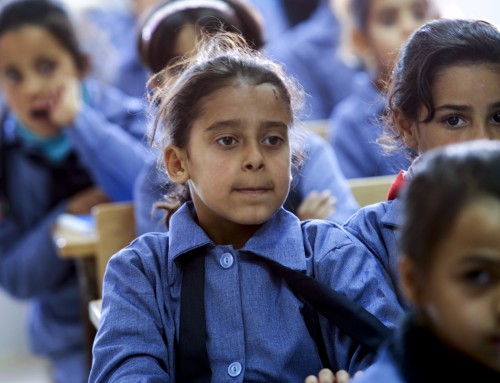Project Description
In 2005, Mongolia became the first country to formulate a ninth MDG on human rights, democratic governance, and anti-corruption in addition to the globally recognized eight MDGs, and thereby emphasize the role of democratic governance in successfully achieving the MDGs and other socio-economic development goals.
Description
On 21 April 2005, the State Great Hural (Parliament) of Mongolia adopted a resolution on the national MDGs that included the ninth MDG on human rights, democratic governance, and anti-corruption in addition to the globally recognized eight MDGs.
The MDG-9 includes the following objectives:
(1) Fully respect and uphold the Universal Declaration of Human Rights, ensure the freedom of media, and provide the public with free access to information,
(2) Mainstream democratic principles and practices into life, and
(3) Develop a zero-tolerance environment to corruption in all spheres of society.
Thus Mongolia became the first country to formulate governance MDG and emphasize the role of democratic governance in achieving successfully MDGs and other socio-economic development goals.
To name few initiatives of the President of Mongolia Tsakhiagiin Elbegdorj towards strengthening the rule of law in Mongolia, the most significant action would be the judicial reform. Started in 2010, six laws (Law on Court Administration, Law on Courts, Law on Legal Standing of Judges, Law on Legal Standing of Lawyers, Law on Mediation, Law on Citizen Representatives in Court) were successfully adopted by the Parliament, and has come into effect on April 15th, 2013.
The other initiative would be the Law in Glass Account. This law requires every office, organization, agency, company and all other government-budget institutions to provide the details of their expenditure online and/or at public announcement boards.
Key results
As a country which adopted and implemented the MDG-9 on “Strengthening human rights, fostering democratic governance and zero tolerance to corruption”, Mongolia has had a positive experience of keeping rule of law as an integral part of the development agenda. During the MDG-9 implementation period, Mongolia improved its conformity of domestic laws and regulations with international human rights treaties and conventions by nearly 4 percent and there has been a notable progress in enhancing democratic principles, particularly reforming the election system, decentralization of political power and ensuring wider participation of citizens, improving accountability of public services, and strengthening justice in the country. A substantial increase has been observed in maintaining free media and increasing budget transparency of state organizations and a large-scale reform was undertaken to combat corruption, reduce bureaucracy and injustice in public service, and accelerate decentralization and remove conflict of interest.
As a result of the judicial reform, courts’ budget has become independent from the Parliament, meaning Court Administration has a sole right to draft the budget of all courts of the nation and to submit it to the Parliament. This has opened the doors of courts to be economically sovereign. By raising the bar, strengthening the requirements for future judges and lawyers, only highly educated and experienced people will be appointed to this important positions. Legal environment of mediation plays a significant role in decreasing the number of cases in courts, offering dispute resolution method for some cases. To ensure democracy and to implement the statute of the Constitution of Mongolia, we started to include citizens in decision-making process. All these laws within judicial reform, overall, provides more independent, impartial decision-making process, ensures high professional skills in the courtroom, and, most importantly, considers human rights as the most important factor in the process of a hearing.
The Law on Glass Account provides a transparency of national budget, gives the opportunity to monitor government spending, which is tax-payers’ money. Every person has a right to question and report any failure or error of any organizations’ spending.
Key lessons learnt
By incorporating the targets on human rights and democratic governance, MDG-9 had positive impacts on the process of implementing other MDGs.
Mongolia considers the effective periodic review of the implementation of the MDGs as an important means of ensuring the rule of law as an integral part of the development agenda. Mongolia has produced MDGs national implementation report 5 times between 2004 and 2013.
By increasing the responsibility and accountability of professionals in legal field on paper alone is not enough to implement it. We had to have a part-time working institution to control the legality and legitimacy of judges and lawyers. But it is still not enough to catch wrongdoings of the professionals.
The most important factor in ensuring rule of law is education of lawyers and judges. While renewing and amending the laws, we have to constantly educate all the professionals with new and upcoming information.
Lastly, judges’ mentality needs to be set to foresee the future and the consequences as for using or explaining the law. Unstable mentality and tendency to judge a case by the day’s emotion or with no emotion at all also disrupts the vision of the law.
Other relevant information
In spite of progresses in strengthening the rule of law in the country, there is a long journey ahead to ensure the rule of law for further consolidation of democracy and governance in the country. Thus, the President and the Government of Mongolia are continuing the agenda through innovative programs such as “From Big State to Smart State” which undermines to pursue goals of smart governance, safe society and effective service, decentralization of budget through direct democracy and citizen’s participation, and introduction of Government Service e-Mashines, one-stop shops and others.
Among them, opening of Citizens’ Hall – a public hearing forum was an innovative and efficient way of public empowerment. The Hall encourages participation of Mongolian citizens in the parliament’s decision making. In each proceeding, citizens are given time to speak and express their opinion on pending legislation. The Hall is open to any citizen of Mongolia and is conveniently located in the Government House in Ulaanbaatar; local Citizens’ Halls have been opened in all administrative units. Since its opening in 2009, discussions of about 400 draft laws and draft decisions of the national Parliament were held in the Citizens’ Hall and opinions of thousands of citizens were heard.






